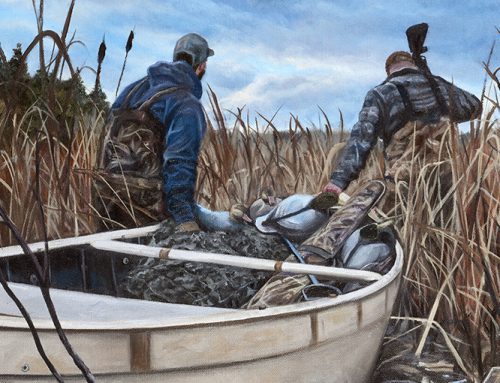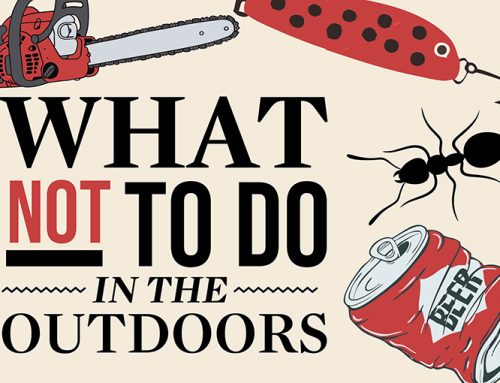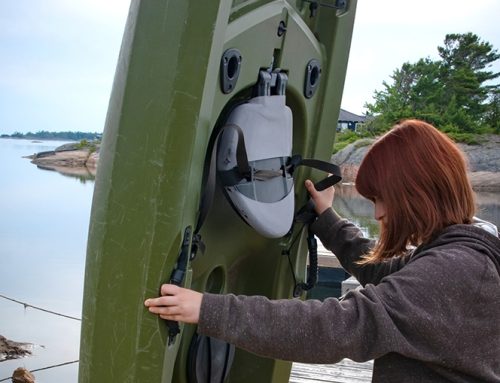A Saskatchewan-based Conservative Member of Parliament is seeking to amend the Criminal Code of Canada to make it an offence to interfere with lawful hunting, fishing, trapping, or sport shooting.
When introducing Private Members’ Bill C-655, MP Garry Breitkreuz said traditional heritage activities have played an integral role in shaping Canada’s social and cultural heritage and make a significant contribution to the national economy.
“As Co-Chair of the Parliamentary Outdoor Caucus, I recognize the need to protect those Canadians who lawfully hunt, fish, trap, or shoot from those who would harass or interfere with these traditional heritage activities,” explained Breitkreuz.
“I’ve seen too many bills introduced in Parliament over the years that would threaten traditional animal use — some that would go so far as to make it a federal criminal offence to shoot a deer or a duck, put a worm on a hook, or kill any animal even if the animal died immediately — the accepted standard for legal killing.”
While there is a patchwork of legislation at the provincial and territorial levels, Breitkreuz said Bill C-655 would harmonize and clarify across Canada the protection of those pursuing all of these time-honoured activities by placing these offences within the Criminal Code of Canada.
There should be protections afforded to the participants of lawful activities from anyone seeking to disrupt them on the basis of philosophical differences, says Ontario Federation of Anglers and Hunters (OFAH) Executive Director Angelo Lombardo.
“In many jurisdictions, Ontario included, regulated hunting and fishing are considered to be one of the most valuable wildlife management tools available to governments, without which, many fish and wildlife populations would go unchecked, to the detriment of the species and their habitat,” Lombardo said. “It’s unfortunate that groups and individuals who are philosophically opposed to hunting, fishing or trapping sometimes cross the line between objection and obstruction, making legislation like this necessary to protect legal activities.”
According to the OFAH, hunting and fishing in Canada generates roughly $13.5 billion annually, with trapping and outfitting contributing another $1.7 billion. Anglers and hunters are also the leading conservationists of our fish and wildlife, contributing hundreds of millions of dollars to projects on the ground designed to protect and enhance our natural resources.
The national scope of the legislation, which contains similar language to the Ontario Fish and Wildlife Conservation Act and other provincial legislation across Canada, aims to ensure that the same protection afforded hunting, fishing and trapping in one jurisdiction will be applied equally in all others.







It should also be an offence to hunt or trap on private land without consent and a private land owner should be exempt from these provisions when they haven’t given consent
It is an offence to hunt or trap on private property without consent. Its called trespassing.
Just try to enforce it.. impossible!
The overall wording of C655 is pretty vague in my opinion, to the point that portions of it could be interpreted by LEO or the judiciary in a manner completely opposite of the purpose and intent of the amendment. It could be invoked by parties in a personal dispute to the detriment of the sporting community as a whole. The wording needs some serious tweaking to make it idiot proof, lest it be turned against those it seeks to protect. Just my opinion.
For Mike and Chris,The offence of trespassing is rarely enforced correctly and the fine is trivial, so especially during “deer week” roving bands of hunters purposely trepass to push through a private property, hammer the deer,and be gone before any law enforcement personnel can respond. The OFAH is a bit slack in not lobbying the province to adopt written permission legislation as exists on Manitoulin island. Good on Mr. Breitkreuz for tring to do something at the federal level.